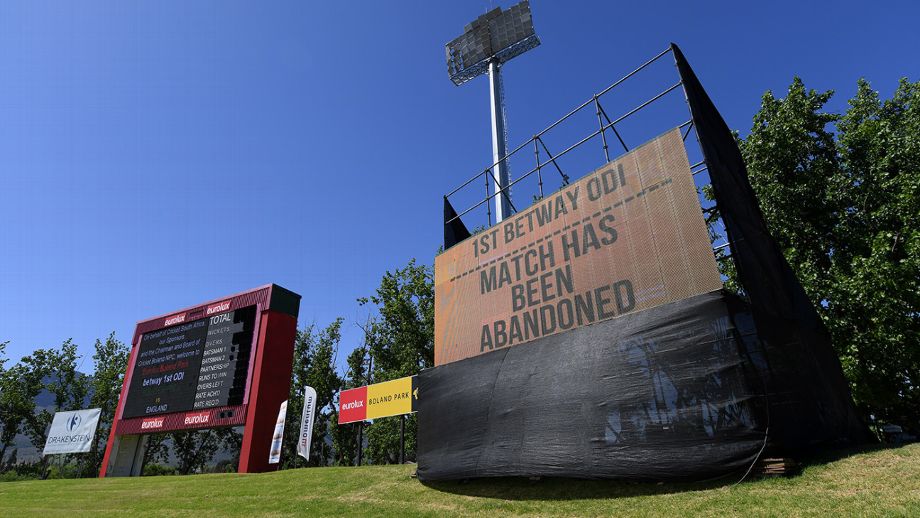With the England series on the verge of being cancelled, and the rest of the summer schedule in jeopardy, South African cricket’s bio-secure bubble team of organisers have their work cut out proving their competency to prospective tourists.
As it stands, it looks unlikely that Cricket South Africa and the England and Wales Cricket Board will find a workable solution to honour the remaining fixture in the three-ODI series schedule.
CSA is desperate to see it go ahead, given their financial interests. The ECB and England’s touring party are ready to head back home. This after a tour marred by numerous positive Covid-19 tests, the latest of which forced the cancelation of the second ODI, due to be played at Newlands on Monday.
The teams are both staying in what is supposed to be a bio-secure bubble at the Vineyard Hotel in Cape Town. They are on separate wings of the hotel, and reports suggest they rarely come into contact with each other. However, the staff are not all residents at the hotel. This complicates matters, although CSA insists that every staff member is constantly tested and those not based at the hotel never come into contact with the players. They’ve established, through close inspection of CCTV footage, that none of the players breached the bubble.
There are, however, more relaxed rules for this bio-secure environment than has been the case for any other major cricket event during the pandemic. While no players are allowed to socialise with the general public, they are allowed the freedom to play golf at Boschenmeer in Paarl, and some other closely monitored recreation is permitted.
This was done in the interests of the players’ mental well-being. There are numerous players on both teams who have transitioned from one bubble to the next for nearly six months, so this is completely understandable. However, CSA will have to reconsider this approach if they want to avoid upcoming tours by Sri Lanka (due to arrive in 12 days), Pakistan and Australia being affected by positive tests.
England’s bubble in their summer series against the West Indies was never breached by the virus. The Indian Premier League reported some early cases but were able to negate the effects thereof safely and get through the tournament with no disruption to the schedule. Many other codes, including basketball, where they completed an entire playoff and finals series inside a bio-secure bubble in Florida, have achieved this successfully.
This means the disrupted tour reflects badly on South Africa, even though it is an undoubtedly painfully complex task to prevent the virus bursting the bubble.
It remains to be seen whether Sri Lanka, Pakistan and Australia will tour. The financial implications of them not doing so could force their hand. Sri Lanka and Pakistan, in particular, are heavily reliant on income the tour will generate. Australia, however, aren’t as financially desperate, and will be more circumspect. Their decision-making is likely to be guided by how well or badly the Sri Lanka tour goes … if it goes.
ESPNcricinfo‘s Firdose Moonda reports that the six-match England tour is estimated to be worth around R64 million. Given CSA’s dire financial state, this was a critical financial lifeline. They are likely to just break even for the tour, in light of their income from the T20I series being compromised by the expenses related to a disrupted ODI series.
Australia’s scheduled three-Test series in February next year would likely generate similar income. Thereafter the Proteas play Ireland and the Netherlands – hardly money-spinning series – before travelling to India in October in preparation for the World Twenty20.
India tour at the end of 2021, by which time it is expected that a vaccine would have reached our shores and a high percentage of the population would have received it. That, from a financial perspective, seems lightyears away for CSA.
If the Sri Lanka tour goes ahead, it will require a hardline approach from CSA. Players have to accept temporary discomfort for longer-term gains. After all, their salaries are directly dependent on CSA’s ability to make money.
The next month is critical for the financial health of South African cricket. We can’t get this wrong.







